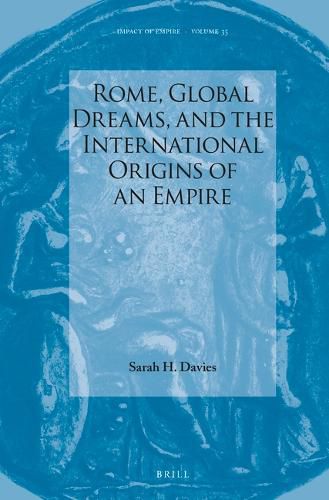Readings Newsletter
Become a Readings Member to make your shopping experience even easier.
Sign in or sign up for free!
You’re not far away from qualifying for FREE standard shipping within Australia
You’ve qualified for FREE standard shipping within Australia
The cart is loading…






In Rome, Global Dreams, and the International Origins of an Empire, Sarah Davies explores how the Roman Republic evolved, in ideological terms, into an Empire without end. This work stands out within Roman imperialism studies by placing a distinct emphasis on the role of international-level norms and concepts in shaping Roman imperium. Using a combination of literary, epigraphic, and numismatic evidence, Davies highlights three major factors in this process. First is the development, in the third and second centuries BCE, of a self-aware international community with a cosmopolitan vision of a single, universalizing world-system. Second is the misalignment of Rome’s polity and concomitant diplomatic practices with those of its Hellenistic contemporaries. And third is contemporary historiography, which inserted Rome into a cyclical (and cosmic) rise-and-fall of great power.
$9.00 standard shipping within Australia
FREE standard shipping within Australia for orders over $100.00
Express & International shipping calculated at checkout
In Rome, Global Dreams, and the International Origins of an Empire, Sarah Davies explores how the Roman Republic evolved, in ideological terms, into an Empire without end. This work stands out within Roman imperialism studies by placing a distinct emphasis on the role of international-level norms and concepts in shaping Roman imperium. Using a combination of literary, epigraphic, and numismatic evidence, Davies highlights three major factors in this process. First is the development, in the third and second centuries BCE, of a self-aware international community with a cosmopolitan vision of a single, universalizing world-system. Second is the misalignment of Rome’s polity and concomitant diplomatic practices with those of its Hellenistic contemporaries. And third is contemporary historiography, which inserted Rome into a cyclical (and cosmic) rise-and-fall of great power.